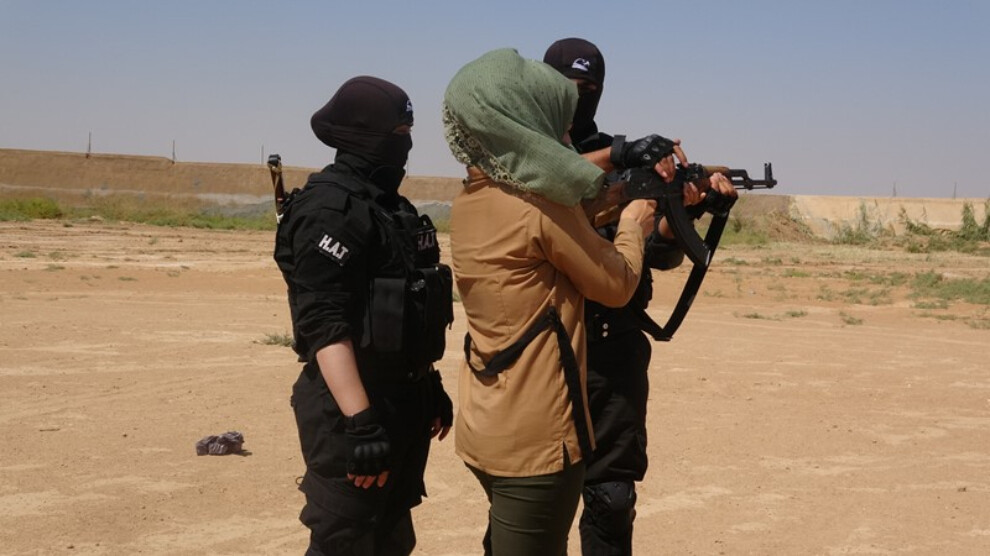Dirbesiyê Assembly completes mobilization preparations
The Crisis Desk established by the Dirbesiyê Assembly has completed preparations for the mobilization declared by the Autonomous Administration against Turkish invasion.
The Crisis Desk established by the Dirbesiyê Assembly has completed preparations for the mobilization declared by the Autonomous Administration against Turkish invasion.

After the Democratic Autonomous Administration of North and East Syria (AANES) declared mobilization on July 6, the district and canton assemblies began preparations against the threats and attacks of the invading Turkish state.
A Crisis Desk was formed by the women, health, defence and youth committees to make preparations in the Dirbesiyê district of the Hesekê canton, which borders on Turkey.
“North and East Syria is going through a delicate process after the invading Turkish state increased its threats and attacks against the region. It is very important to declare mobilization against attacks, it is a common practice against dangers in all countries,” Rûstem Bekir, co-chair of Dirbesiyê District Assembly and a member of the Crisis Desk, said on Monday.
Pointing out that the region has been torn by wars for many years, Bekir said that the Turkish occupation targeted all regions of North and East Syria, and civilian settlements were bombed in the district of Dirbêsiyê as well.
'THE REGION IS PREPARING FOR A REVOLUTIONARY PEOPLE'S WAR'
Bekir talked about their preparations: “All organizations and committees, such as the municipality, the women's, health, defence and youth committees have made preparations in food storage areas and basements. Moreover, many health centres in and outside the district have contributed to the preparations with their personnel.”
Bekir emphasized that the people of the region prepared themselves for a revolutionary people's war, and society and young people play an important role in the protection of the region since they are the basis of the revolution.
“Military forces are ready to fight the enemy and protect the region. The people are also ready to resist based on a revolutionary people's war. Necessary sustenance has been provided to all neighbourhoods and villages close to the border,” Bekir said.
Bekir noted that the communes would turn into a military, political and social community in war and carry out activities to organize the residents of the region.